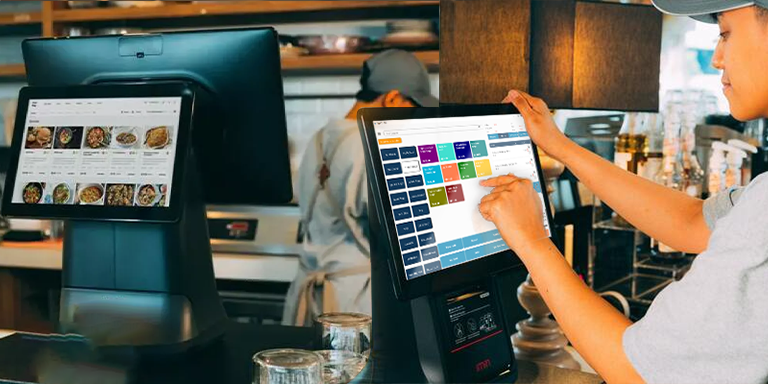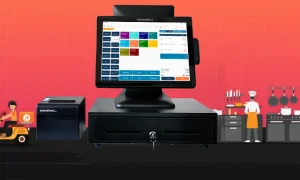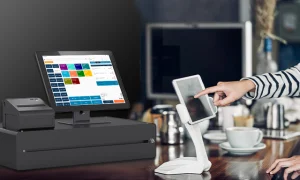Running a successful restaurant requires more than just great food and excellent service. It also demands effective management and streamlined operations. That’s where reliable restaurant POS (point of sale) software comes into play. In today’s fast-paced world, restaurant owners need a POS system that can keep up with their needs and drive their bottom line. A modern POS system goes far beyond simple order-taking and payment processing. It can revolutionize the way a restaurant operates by providing insights into sales, inventory management, and customer preferences. Imagine being able to easily track your best-selling dishes, manage inventory in real time, and identify areas where you can reduce costs. With the right POS system, these tasks become seamless and efficient, allowing you to focus on what really matters – your customers. Whether you run a small café, a bustling eatery, or a fine dining establishment, investing in a capable POS system can be a game-changer for your business. By harnessing the power of technology, you can improve operational efficiency, enhance customer experience, and ultimately boost your bottom line. It’s time to take your restaurant to the next level with a modern POS system.
Advantages of using a restaurants POS(point of sale) software
Order Accuracy:
POS systems reduce the chances of manual errors in order taking. Orders are entered directly into the system, minimizing misunderstandings or mistakes in communication between staff and the kitchen.
Efficient Order Management:
The system streamlines the order management process, sending orders directly to the kitchen or bar. This reduces the time it takes for orders to be prepared and served, enhancing overall operational efficiency.
Online Ordering and Delivery Integration:
Online ordering and delivery integration with POS systems is a critical aspect of modern restaurant management, enabling establishments to cater to the evolving preferences of consumers. This integration creates a seamless transition between in-house dining and online orders, providing numerous benefits for both the restaurant and its customers.
Inventory Management:
POS systems help in tracking inventory levels in real-time. This ensures that restaurants can manage their stock effectively, preventing overstock or stockouts. It also aids in automatic reordering when inventory reaches predefined levels.
Menu Customization:
Restaurants can easily update menus, add or remove items, and adjust prices using a POS system. This flexibility enables them to respond quickly to changes in customer preferences, seasonal variations, or supply costs.
Table Management:
POS systems assist in efficient table management. Staff can easily track which tables are occupied, available, or awaiting service. This enhances the overall dining experience by reducing wait times and improving table turnover.
Sales Reporting and Analytics:
POS systems provide detailed sales reports and analytics. Owners and managers can analyze data to gain insights into peak hours, popular menu items, and overall sales performance. This information is valuable for making informed business decisions.
Customer Relationship Management (CRM):
Some POS systems include CRM features that allow businesses to track customer preferences, order history, and contact information. This information can be used to implement targeted marketing campaigns and loyalty programs.
Integration with Other Systems:
POS systems can integrate with other business systems, such as accounting software, employee scheduling tools, and online ordering platforms. This integration streamlines operations and reduces the need for manual data entry.
Enhanced Security:
POS systems provide a secure way to process transactions, reducing the risk of fraud. They often come with built-in security features, such as user authentication and encryption, to protect sensitive customer and financial data.
Improved Customer Experience:
Faster order processing, accurate billing, and efficient table management contribute to an overall improved dining experience for customers. This, in turn, can lead to increased customer satisfaction and loyalty.
Restaurant POS(point of sale) systems have evolved into indispensable tools that streamline operations, enhance customer experiences, and boost overall efficiency. The current landscape of POS systems has witnessed significant advancements, providing restaurants with unprecedented capabilities for order management, inventory control, and data analysis.
Looking towards the future, we anticipate a continued evolution of POS systems in the restaurant industry. Integration with emerging technologies such as artificial intelligence, machine learning, and contactless payment solutions is likely to play a pivotal role. Seamless connectivity between POS systems and other facets of restaurant management, such as customer relationship management (CRM) and kitchen automation, is expected to become more prevalent, further optimizing workflows.
As the restaurant industry continues to embrace digital transformation, restaurant POS software will remain at the forefront of innovation, continually adapting to meet the evolving needs of businesses and providing a foundation for sustained growth and success.


